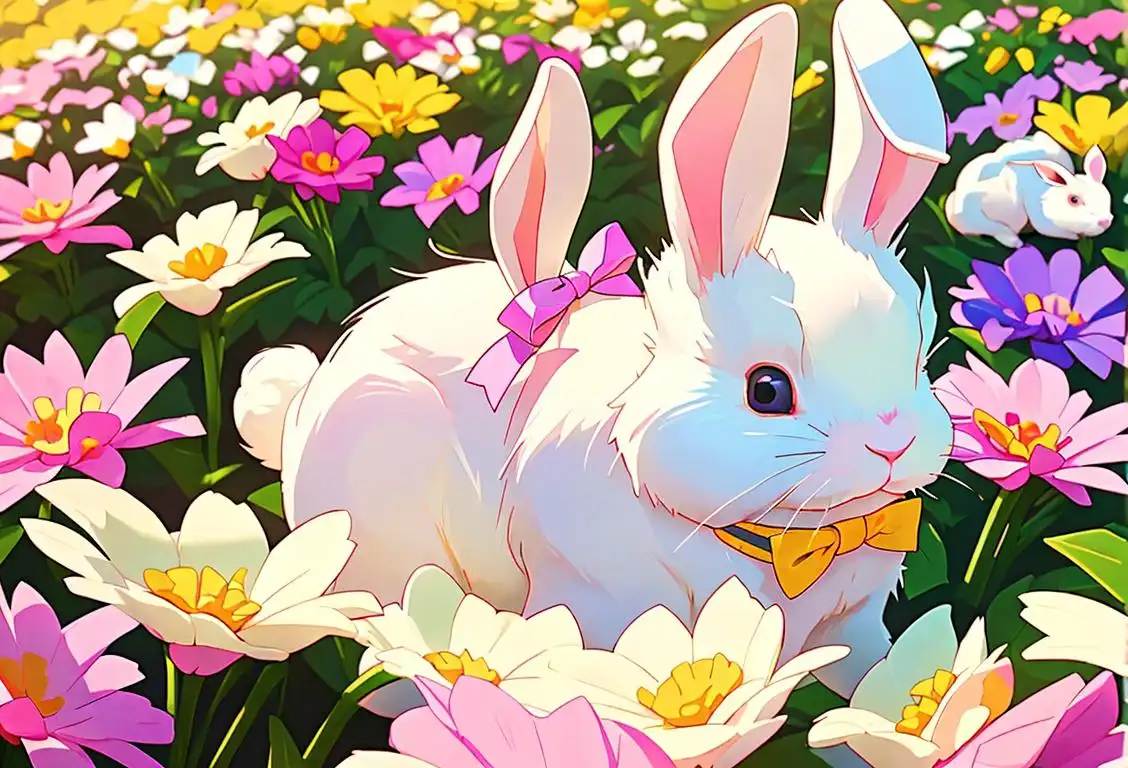National Rabbit Day

Welcome to National Rabbit Day, the hoppiest day of the year! Prepare to dive down the bunny hole and discover everything there is to know about these adorable, floppy-eared creatures. On this special day, we celebrate our furry friends and their undeniable cuteness. So get ready to hop to it and let's explore the history and significance of National Rabbit Day!
When is Rabbit Day?
It's national rabbit day on the 25th September.
The Origins of National Rabbit Day
Did you know that National Rabbit Day was first celebrated on September 25, 2017? While it may seem like a recent addition to the world of national days, rabbits have captivated humans for centuries. These fluffy creatures have hopped their way into folklore, literature, and even our hearts.
There are several theories about the origins of National Rabbit Day. Some say it was created by a group of enthusiastic bunny lovers who wanted to spread awareness about rabbit care and adoption. Others believe it was simply a way to celebrate the joy and happiness these little furballs bring to our lives.
Regardless of its origins, National Rabbit Day is now a beloved holiday for rabbit owners and enthusiasts worldwide. It's a day to pamper our pet bunnies, learn about their unique characteristics, and raise awareness about the importance of rabbit welfare.
How to Celebrate National Rabbit Day
There are countless ways to celebrate National Rabbit Day, whether you have a pet bunny or not. Here are a few ideas to get you started:
- Visit a local rabbit shelter and consider adopting a bunny friend.
- Organize a bunny-themed party with your loved ones. Bunny ears and carrot-shaped treats are a must!
- Support rabbit rescue organizations by making a donation or volunteering your time.
- Learn about different rabbit breeds and their characteristics. Did you know that some rabbits can weigh up to 20 pounds?
Remember, always treat rabbits with love and care. These delicate creatures deserve our attention and appreciation.
History behind the term 'Rabbit'
1382
The Origin of the Word
The term 'rabbit' has its origins in the Middle English word 'robbit' which came from the Old French word 'rabet'. It is believed to have derived from the Latin word 'cuniculus' meaning 'rabbit' or 'underground passage'. The first recorded instance of the word 'rabbit' in English can be traced back to a manuscript from 1382.
1570
Introduction to Britain
Rabbits were introduced to Britain during the reign of the Roman Emperor Augustus. They were initially brought over from Spain, where they were highly valued for their meat and fur. The Romans considered rabbits a delicacy and kept them in large warrens for breeding, eventually spreading them throughout the Roman Empire, including Britain.
1723
Domestication and Breeding
During the 18th century, rabbits gained popularity among European aristocracy for both their companionship and their use in hunting. This led to the development of various domestic rabbit breeds through selective breeding. The Angora rabbit, known for its long, silky fur, originated in Ankara, Turkey, and was introduced to Europe around this time.
1888
Watership Down
In 1888, English author Richard Adams published the novel 'Watership Down,' which brought rabbits into the literary spotlight. The book, although a tale of adventure and survival, depicted rabbits with complex social structures and language, capturing the hearts of readers worldwide. It further cemented rabbits as fascinating creatures in popular culture.
1950
Easter Bunny
The term 'rabbit' became synonymous with the Easter Bunny. While the exact origin of the Easter Bunny tradition is unclear, it is believed to have roots in German folklore. The Easter Bunny, known for delivering eggs and treats to children during Easter, became a widely recognized symbol thanks to its association with the holiday.
Did you know?
Did you know that rabbits have a 360-degree field of vision? This means they can see almost everything around them without turning their heads. Talk about watching your back!Tagged
awareness fun loved onesFirst identified
27th August 2015Most mentioned on
25th September 2017Total mentions
355Other days
Compliment Day
Cheese Pizza Day
Pumpkin Day
Medal Of Honor Day
Guac Day
Foundation Day
Suicide Prevention Day
Memorial Day
Cancer Survivors Day
Bacon Day









